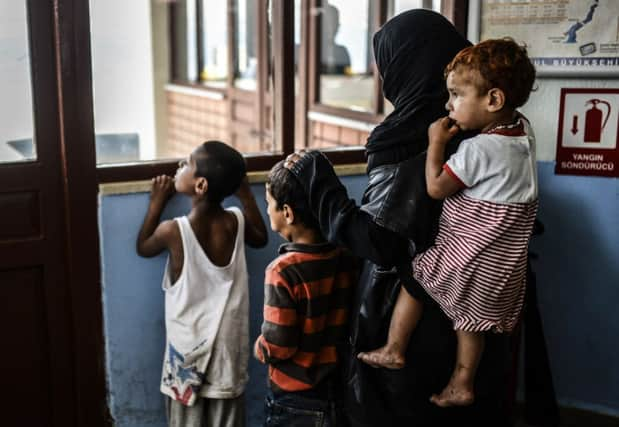Young refugees can be force for positive change


This year, Bayan would be completing her lower secondary schooling and preparing for her ninth-grade examination to enter upper secondary school. Instead, she fled Damascus when she was 12. Today she is a refugee in Jordan. Mohammed was 15 when he fled Homs. He should be completing his 12th grade examination and preparing to enter university or the workforce. Today he is a refugee in Lebanon.
Instead of planning their futures and meeting important life and educational milestones, Bayan and Mohammed find themselves in neighbouring countries, their futures held hostage.
Advertisement
Hide AdAdvertisement
Hide AdThe conflict in Syria and exodus of Syrians is in its fourth year. During this time, more than 1.2 million children have been forced to flee. One in three refugee children (nearly 400,000) are between the ages of 12 and 18. 68 per cent are not attending school.
Yet, on my recent visit to Jordan and Lebanon, I saw the determination to do what it takes to ensure, in the words of the Unicef campaign launched earlier this year, that there is “No Lost Generation”.
Today, on World Refugee Day, we have launched a new report describing the obstacles facing Syrian refugee youth. What happens to them in the next three years will determine their success in rebuilding the country and the region.
We have put forward recommendations for adolescent programming which include, reducing barriers to formal education and offering alternative learning models, and providing activities that lessen the sense of isolation and lost connection to their communities.
The Syrian conflict has eroded 35 years of development. It continues to deny the region of the productive, wage-earning youth and adults it needs to stabilise tensions and drive social and economic development. If we are to raise hope, we must help Syrian adolescents become the powerful force for positive change.
• Jock Encombe is chairman of Mercy Corps Europe, a global humanitarian agency headquartered in Edinburgh
SEE ALSO